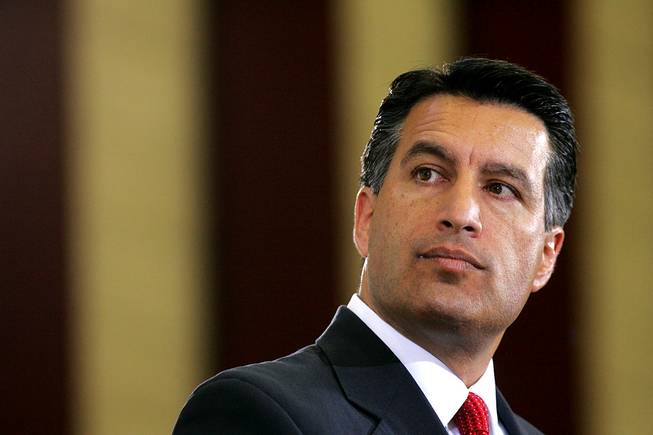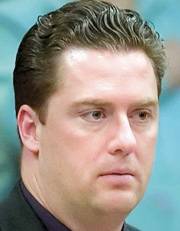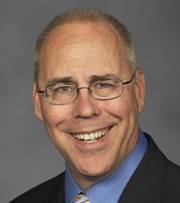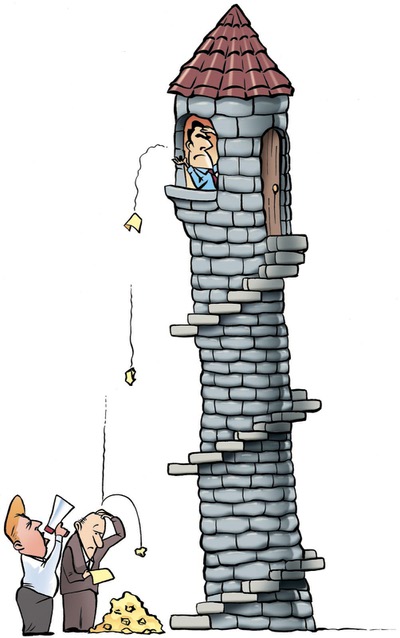
Gov.-elect Brian Sandoval is finding himself increasingly isolated in his position against any new taxes. A large number of politicians and businesspeople acknowledge that tax increases will be necessary to maintain vital state services, including education.
Wednesday, Dec. 29, 2010 | 2:01 a.m.
To tax
Nevada’s educational system, which ranks near the bottom nationwide, accounts for 53 percent of the state budget. Without devoting more money to education, some leaders fear, the state will never become desirable enough to attract a diverse array of businesses or improve the quality of life here.
Or not to tax
With Nevadans still feeling the effects of the Great Recession, some say raising taxes is an unnecessary burden on businesses and individuals, arguing that such revenue-boosting tactics would hurt job growth.

John Oceguera

Neal Smatresk
Sun coverage
Sun archives
- State has upper hand in budget turf war (12-27-2010)
- Sandoval to build own budget (12-22-2010)
- Panels propose ideas to squeeze state budget (12-4-2010)
- Sandoval budget assumes 10 percent cut to state, higher ed and furloughs (12-2-2010)
- Polished knife still cuts deep into state’s budget (11-28-2010)
- Expect Sandoval to flex his newfound political capital on his anti-tax pledge (11-10-2010)
- Let Sandoval take heat for budget, Democrats say (11-5-2010)
- Brian Sandoval defeats Rory Reid in governor’s race, now must govern (11-2-2010)
- University system snubs governor, won’t submit budget with cuts (10-28-2010)
- State’s budget woes could end programs targeting seniors (10-27-2010)
- Reid, Sandoval clash over state budget in lively governor’s debate (10-26-2010)
- Home assistance for disabled among services on budget chopping block (10-21-10)
- Museums hit under proposed cuts to state budget (10-19-10)
- Governor’s race tightens as budget debate avoided (10-5-2010)
- $2.5 billion state budget deficit: ‘Best-case scenario’ (4-23-2010)
- Gibbons: School districts should brace for 10 percent cuts (2-2-10)
- Brian Sandoval, Rory Reid spar over budget solutions (1-27-2010)
Developer Rich Worthington thought he had two big fish on the line, the kinds of companies whose arrival in Las Vegas would have made headlines, a tidy profit for his firm and created hundreds of jobs.
IKEA, which sells home furniture and accessories, wanted to open one of its massive showrooms here; Internet service provider EarthLink was considering moving a call center from California to Las Vegas.
The Molasky Group of Cos., where Worthington is president, wined and dined representatives of the two companies and took them on tours of the valley. “They were very interested in the tax structure, in the low operating costs,” Worthington said.
But both companies decided against coming here and both did so for the same reason — a lack of college graduates.
“IKEA said our percent of college graduates was just too low and they found they didn’t do well in that kind of market,” Worthington said.
EarthLink “said they hire and recruit college graduates, and it would be too expensive to recruit from Southern California and elsewhere, then bring them here.”
Worthington tells the story as an argument against the narrative that’s been written in Nevada for most of the past decade: Low taxes will draw businesses and jobs.
“We go year to year and the Legislature continually responds to lobbyists who continue to maintain this mentality about harvesting resources without putting anything back into the community,” Worthington said.
Meanwhile, Gov.-elect Brian Sandoval has pledged not to raise taxes, reasoning that the deepest recession in memory isn’t the time to burden businesses and individuals.
Worthington, who counts himself as a supporter of the governor-elect, and others, however, say the state must raise taxes to protect its education system, otherwise schools and universities will be hurt and the state will be less competitive nationally and less able to dig itself from the economic morass.
These conflicting views on how to improve Nevada’s economy will be the key debate between the governor and lawmakers during the 2011 Legislature. State government is projected to be billions of dollars short of the funding needed to continue state services, including schools, at current levels.
With his no-new-tax pledge, Sandoval increasingly finds himself on a no-new-tax island with only a small cadre of conservatives.
Republican leadership in the Assembly and Senate are on record saying they believe taxes passed in 2009, and set to expire in 2011, will have to be extended. Senate Majority Leader Steven Horsford, D-Las Vegas, has said there will need to be both spending cuts and tax increases.
Incoming Assembly Speaker John Oceguera, D-Las Vegas, last week became the latest legislator to say a tax increase will likely be needed.
The gaming and broader business community stress the importance of protecting education, which comprises 53 percent of the state budget. Even at that share of spending, the state is 46th nationwide in higher education funding per capita; 45th in residents with a bachelor’s degree; and 41st in the number of 18- to 24-year-olds who enroll in state universities.
At the same time, according to Oceguera, Nevada has the second-lowest tax rate in the country.
Oceguera tried last week to drive home what he and others see as the problem with a cut-only approach to the budget. Addressing the Clark County Commission, Oceguera said a 10 percent cut would hurt services and still not balance the budget. A gap of 7 percentage points would remain between revenue and expenses.
Although a tax increase won’t bridge the entire gap, he told the Sun, “at the end of the day, there’s probably going to be a need for revenue.”
Policymakers in Nevada, from legislators to governors, have a long reputation for listening to a small group of powerful lobbyists, many representing big business and gaming. So education advocates are focusing on getting buy-in from the private sector.
Jan Jones, a vice president at Caesars Entertainment and former Las Vegas mayor, said a broad group of gaming and business leaders thinks improving the education system “is in the long-term interest of the state’s economic health.”
“We are concerned about the governor’s perceived position to not consider a broad-based business tax,” said Jones, a Democrat. “Anyone who thinks we can move forward in this state without implementing a broad-based business tax is failing to lead and deluding themselves to the reality of our economic situation.”
Others in the business community say gaming leaders calling for a broad-based business tax don’t speak for the larger business community.
Monte Miller, a businessman and close adviser to Sandoval (as he was to Gov. Jim Gibbons), said “the majority of businesses don’t want tax increases right now.”
He criticized calls from gaming and mining for a broad-based business tax, saying the state’s modified business tax, which taxes payrolls, is effective and fair.
To be sure, any criticism or praise of the governor’s approach must be tempered by the fact that Sandoval won’t unveil his budget until late January. Sandoval’s staff said he remains committed to balancing the budget without additional revenue, including fees. Sandoval, who won a convincing victory over his Democratic opponent, has a broad-based transition team and plenty of political capital.
Whatever the governor and Legislature do, UNLV President Neal Smatresk thinks the path to better living standards and, more importantly, more jobs in Nevada runs through the university system.
“I am 100 percent sure that the people living here want a better life for their children, and you’re not going to get a better life unless you invest in the community,” he said. “I would call education the most fundamental investment that we need right now. There are unequivocal connections between the number of degreed and advanced-degreed citizens and the economic health of a region.”
That business-minded Las Vegans support his view is evidenced in the fact Smatresk is on the cover of the November issue of Business Voice, produced by the Las Vegas Chamber of Commerce.
Smatresk said he knows “many conservatives who are attuned to the role of UNLV, and they understand that this isn’t the time to back away from that investment.”
“And I don’t think any governor wants to be the governor who flushed higher education,” he added. “At some point, I think they’ll roll up their sleeves and make sure higher education, which is critical for this state, is going to be adding to the economy — not just cutting us.”


Join the Discussion:
Check this out for a full explanation of our conversion to the LiveFyre commenting system and instructions on how to sign up for an account.
Full comments policy